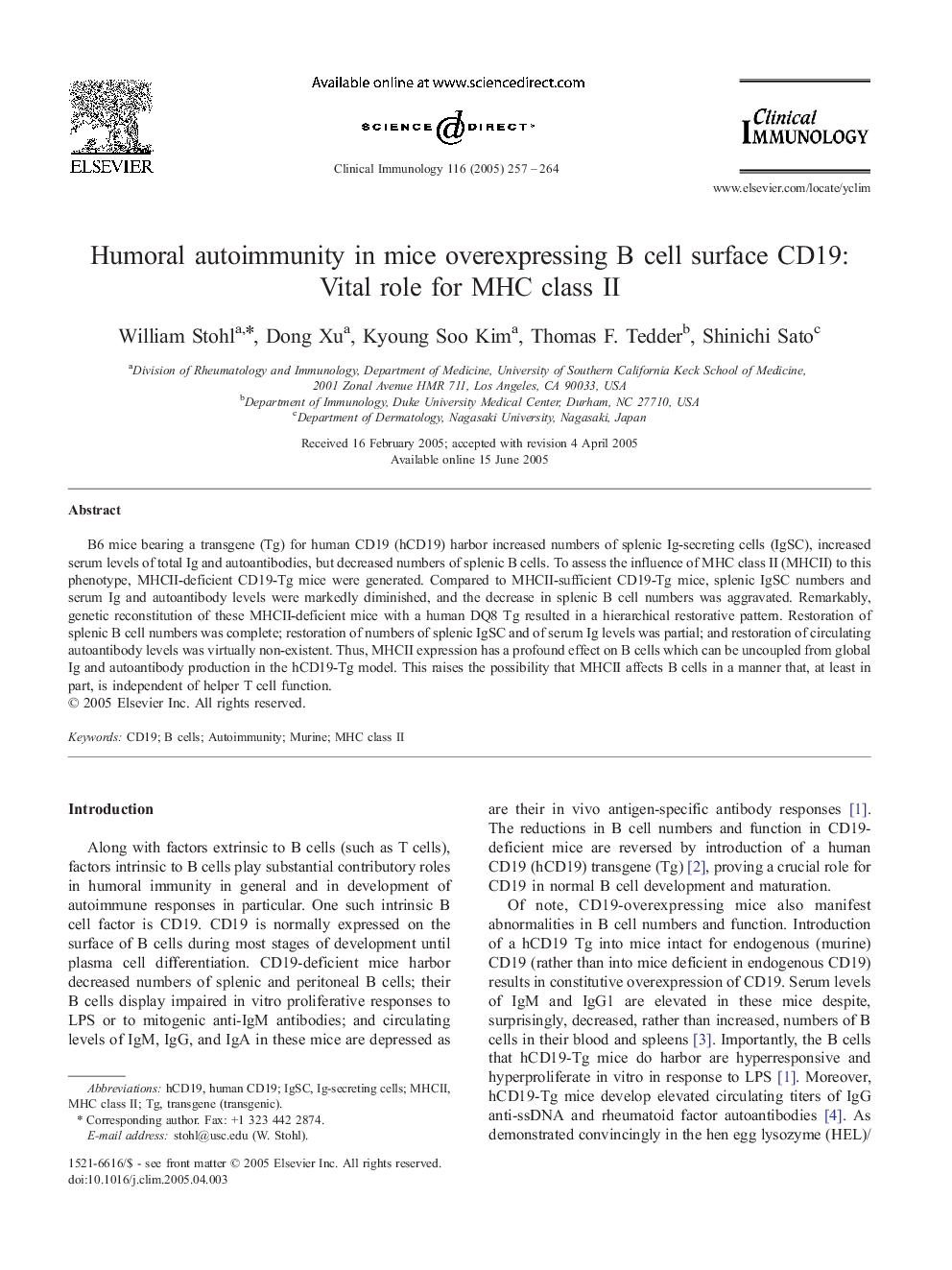| Article ID | Journal | Published Year | Pages | File Type |
|---|---|---|---|---|
| 9236665 | Clinical Immunology | 2005 | 8 Pages |
Abstract
B6 mice bearing a transgene (Tg) for human CD19 (hCD19) harbor increased numbers of splenic Ig-secreting cells (IgSC), increased serum levels of total Ig and autoantibodies, but decreased numbers of splenic B cells. To assess the influence of MHC class II (MHCII) to this phenotype, MHCII-deficient CD19-Tg mice were generated. Compared to MHCII-sufficient CD19-Tg mice, splenic IgSC numbers and serum Ig and autoantibody levels were markedly diminished, and the decrease in splenic B cell numbers was aggravated. Remarkably, genetic reconstitution of these MHCII-deficient mice with a human DQ8 Tg resulted in a hierarchical restorative pattern. Restoration of splenic B cell numbers was complete; restoration of numbers of splenic IgSC and of serum Ig levels was partial; and restoration of circulating autoantibody levels was virtually non-existent. Thus, MHCII expression has a profound effect on B cells which can be uncoupled from global Ig and autoantibody production in the hCD19-Tg model. This raises the possibility that MHCII affects B cells in a manner that, at least in part, is independent of helper T cell function.
Related Topics
Life Sciences
Immunology and Microbiology
Immunology
Authors
William Stohl, Dong Xu, Kyoung Soo Kim, Thomas F. Tedder, Shinichi Sato,
